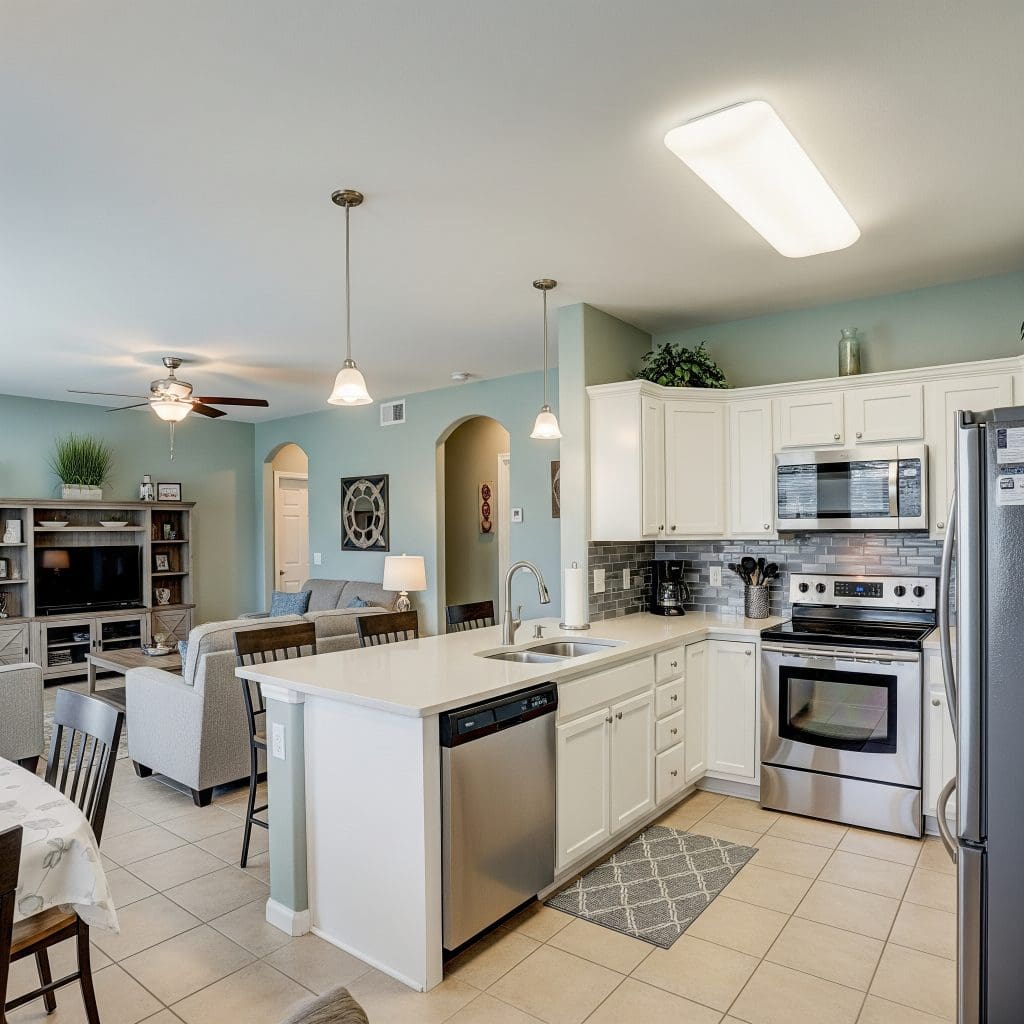HELOC vs. Cash Out Refinance for 1-4 Unit Rental Property: A Strategic Guide for Real Estate Investors
COLORADO SPRINGS, CO – JULY 20, 2025: As a real estate investor with a portfolio of 1-4 unit rental properties, you understand the power of leverage. Unlocking the equity you’ve built in your assets can fuel your next acquisition, fund critical renovations, or provide a safety net for unexpected expenses. When it comes to accessing this capital, two primary options emerge: a Home Equity Line of Credit (HELOC) and a cash out refinance.
- HELOC vs. Cash Out Refinance for 1-4 Unit Rental Property: A Strategic Guide for Real Estate Investors
- HELOC for 1-4 Unit Rental Property: Flexibility at Your Fingertips
- Cash Out Refinance for 1-4 Unit Rental Property: A Lump Sum Solution
- HELOC vs. Cash Out Refinance: Which is Right for You?
- GHC Funding: Your Strategic Partner for Rental Property Financing
- Investment Opportunities in Colorado Springs, Colorado: A Geo-Targeted Approach
- Strategic Financial Agility
- Frequently Asked Questions (Q&A)
- External Resources for Colorado Springs Investors:
- Ready to Leverage Your Rental Property Equity?
- HELOC vs cash out refinance for 1-4 unit rental property. Get a DSCR loan quote:
HELOC vs. Cash Out Refinance for 1-4 Unit Rental Property
- HELOC for 1-4 Unit Rental Property: Flexibility at Your Fingertips
- Cash Out Refinance for 1-4 Unit Rental Property: A Lump Sum Solution
- HELOC vs. Cash Out Refinance: Which is Right for You?
- GHC Funding: Your Strategic Partner for Rental Property Financing
- Investment Opportunities in Colorado Springs, Colorado: A Geo-Targeted Approach
- Strategic Financial Agility
- Frequently Asked Questions (Q&A)
- Q1: Which option is generally faster to close, a HELOC or a cash out refinance?
- Q2: Can I get a HELOC or cash out refinance if I have a low personal income but high rental income?
- Q3: Are the closing costs for a HELOC or cash out refinance tax deductible for an investment property?
- Q4: Can I get both a HELOC and a cash out refinance on the same property?
- Q5: What is the maximum LTV (Loan-to-Value) I can expect for a HELOC or cash out refinance on a rental property?
- Q6: Does a HELOC or cash out refinance impact my existing tenants?
- Q7: Which option is better for large-scale property renovations?
- External Resources for Colorado Springs Investors:
- Ready to Leverage Your Rental Property Equity?
- HELOC vs cash out refinance for 1-4 unit rental property. Get a DSCR loan quote:
Choosing between a HELOC vs. cash out refinance for 1-4 unit rental property requires a nuanced understanding of each product’s structure, benefits, and drawbacks. At GHC Funding, we specialize in providing flexible and efficient financing solutions tailored to real estate investors, helping you make the most informed decision for your unique situation.

HELOC for 1-4 Unit Rental Property: Flexibility at Your Fingertips
A Home Equity Line of Credit (HELOC) on a rental property operates much like a credit card, but with your property’s equity as collateral. It’s a revolving line of credit, allowing you to borrow, repay, and re-borrow funds up to a pre-approved limit over a specified draw period (typically 10 years).
Need capital? GHC Funding offers flexible funding solutions to support your business growth or real estate projects. Discover fast, reliable financing options today!
⚡ Key Flexible Funding Options:
GHC Funding everages financing types that prioritize asset value and cash flow over lengthy financial history checks:
DSCR Rental Loan
- No tax returns required
- Qualify using rental income (DSCR-based)
- Fast closings ~3–4 weeks
SBA 7(a) Loan
- Lower down payments vs banks
- Long amortization improves cash flow
- Good if your business occupies 51%+
Bridge Loan
- Close quickly — move on opportunities
- Flexible underwriting
- Great for value-add or transitional assets
SBA 504 Loan
- Low fixed rates through CDC portion
- Great for construction, expansion, fixed assets
- Often lower down payment than bank loans
🌐 Learn More
For details on GHC Funding's specific products and to start an application, please visit our homepage:

Key Characteristics:
- Variable Interest Rate: HELOCs typically come with variable interest rates, meaning your monthly payments can fluctuate with market changes.
- Interest-Only Payments (During Draw Period): Many HELOCs allow for interest-only payments during the draw period, offering lower monthly outlays initially.
- Flexible Access to Funds: You only pay interest on the amount you draw, making it ideal for ongoing projects or when you need access to capital intermittently.
- Second Mortgage: A HELOC is a second lien on your property, meaning your original mortgage remains intact.
Current Market Insights: HELOC Rates (as of July 20, 2025)
As of today, July 20, 2025, the national average HELOC interest rate is around 8.27%. However, rates can range from 7.00% to 10.00% or higher, depending on the lender, your creditworthiness, and the specific terms.
Factors influencing HELOC rates:
- Prime Rate: HELOC rates are typically tied to the prime rate, which fluctuates with the Federal Reserve’s monetary policy.
- Credit Score: A higher credit score (generally 680+ for investment property HELOCs) will lead to more favorable rates.
- Loan-to-Value (LTV): Lenders often cap HELOCs at 70-80% LTV for investment properties. A lower LTV (more equity) can result in better rates.
- Lender Specifics: Different lenders have different risk appetites and pricing models.
Requirements for a HELOC on Rental Property:
- Significant Equity: You’ll need substantial equity in your 1-4 unit rental property, typically 20-30% or more.
- Strong Personal Credit: Lenders will scrutinize your personal credit history and score.
- Personal Income Verification: Unlike some other investment property loans, traditional HELOCs often require verification of your personal income and debt-to-income (DTI) ratio.
- Property Type: 1-4 unit residential properties are generally eligible.
DSCR Loan IQ Quiz!

Test your knowledge of Debt Service Coverage Ratio (DSCR) loans!
Cash Out Refinance for 1-4 Unit Rental Property: A Lump Sum Solution
A cash out refinance replaces your existing mortgage with a new, larger mortgage. The difference between the new loan amount and your old loan balance (minus closing costs) is paid to you as a lump sum. This effectively leverages your equity into immediate cash.
Key Characteristics:
- New Primary Mortgage: The existing mortgage is paid off and replaced by a single new mortgage.
- Fixed or Adjustable Rate: You can choose between a fixed interest rate, providing predictable monthly payments, or an adjustable rate.
- Lump Sum Payout: Ideal when you need a large sum of money upfront for a specific purpose, like a major renovation or a new property acquisition.
- Potential for Lower Rates: Cash out refinances often have lower interest rates than HELOCs, especially if you can secure a favorable fixed rate.
Current Market Insights: Cash Out Refinance Rates (as of July 20, 2025)
As of today, July 20, 2025, interest rates for cash out refinances on investment properties generally range from 7.00% to 9.00%.
Factors influencing cash out refinance rates:
- Loan-to-Value (LTV): Typically capped at 70-75% LTV for investment properties. Lower LTVs generally result in better rates.
- Credit Score: A strong personal credit score (680+ is often a minimum, 740+ for best rates) is crucial.
- Debt Service Coverage Ratio (DSCR): For DSCR Loans (a popular cash out refinance option for investors), the property’s income-generating ability is paramount. A DSCR of 1.20x or higher often secures more favorable terms.
- Loan Term: Shorter terms (e.g., 15-year fixed) typically have lower rates than longer terms (e.g., 30-year fixed).
Requirements for a Cash Out Refinance on Rental Property:
- Existing Equity: Sufficient equity in your 1-4 unit rental property (typically 25-30% or more, depending on LTV limits).
- Property Must Generate Income: Especially for DSCR loans, the property’s rental income must demonstrate sufficient coverage of the new mortgage payment.
- Credit Score: A solid personal credit score.
- Personal Income Verification (for traditional refi) OR DSCR Focus (for investor loans): Traditional cash out refinances require personal income and DTI verification. However, GHC Funding specializes in DSCR loans which do not require personal income verification, making them ideal for self-employed investors or those with complex financials.
- Entity Ownership (Often Preferred): Loans made to an LLC or other business entity can simplify underwriting for investment properties.
HELOC vs. Cash Out Refinance: Which is Right for You?
The best choice between a HELOC and a cash out refinance depends on your specific investment strategy, financial situation, and how you plan to use the funds.
| Feature | HELOC for 1-4 Unit Rental Property | Cash Out Refinance for 1-4 Unit Rental Property |
| Access to Funds | Revolving line of credit; draw as needed | Lump sum payout at closing |
| Interest Rate | Typically variable; payments fluctuate | Can be fixed or adjustable; predictable payments with fixed rate |
| Mortgage Structure | Second mortgage; original mortgage remains in place | New primary mortgage; replaces original mortgage |
| Closing Costs | Generally lower | Generally higher (similar to a new mortgage) |
| Ideal Use | Ongoing projects, emergency fund, flexible capital needs | Large, one-time expenses, new acquisitions, debt consolidation |
| Income Verification | Often requires personal income and DTI (for traditional HELOCs) | Can be “no income verification” with DSCR loans (like GHC Funding offers) |
| Loan Terms | Draw period (e.g., 10 years) followed by repayment (e.g., 20 years) | Fixed term (e.g., 15, 20, 30 years) |
Choose a HELOC if:
- You need flexible access to funds over time.
- You want to keep your current primary mortgage and its potentially lower interest rate.
- You anticipate using funds for multiple, smaller projects.
- You are comfortable with variable interest rates.
Choose a Cash Out Refinance if:
- You need a large, one-time lump sum of cash.
- You want to potentially secure a lower, fixed interest rate on your entire mortgage.
- You’re looking to simplify your mortgage payments into one.
- You want to leverage a “no income verification” option, like a DSCR loan, from lenders such as GHC Funding.
GHC Funding: Your Strategic Partner for Rental Property Financing
At GHC Funding, we specialize in providing tailored financing solutions that empower real estate investors. We understand that traditional lending can be cumbersome, especially when dealing with multiple investment properties or complex income structures. That’s why we emphasize solutions like DSCR Loans for cash out refinances, which focus on the property’s income-generating potential rather than your personal income.
Why GHC Funding is your go-to lender:
- Flexible Underwriting: We look beyond traditional metrics, focusing on the strength of your investment property. This allows for more flexible eligibility and faster approvals, particularly beneficial for self-employed investors.
- Market Expertise: Our team consists of seasoned professionals who understand the real estate investment landscape inside and out. We provide guidance to help you choose the right product for your goals.
- Streamlined Process: We are committed to efficiency. Our process is designed to minimize paperwork and accelerate closing times, ensuring you get the capital you need quickly.
- Diverse Product Offerings: Beyond DSCR loans, GHC Funding offers a comprehensive suite of financing options including SBA 7a loans, SBA 504 Loans, Bridge Loans, and other Alternative Real Estate Financing solutions, ensuring we have a program for almost every investment scenario.
Investment Opportunities in Colorado Springs, Colorado: A Geo-Targeted Approach
Colorado Springs, nestled at the foot of Pikes Peak, is a dynamic and growing market for real estate investors. Its strong military presence (Fort Carson, Peterson Space Force Base, Air Force Academy), burgeoning tech industry, and vibrant tourism sector contribute to consistent demand for rental properties.
Utilizing a HELOC or cash out refinance can be particularly strategic in Colorado Springs:
- Central Colorado Springs (Zip Codes 80903, 80904, 80905): These areas feature historic homes, charming bungalows, and multi-unit properties. Investors with equity in a well-located duplex in Old Colorado City (80904) could use a cash out refinance (via a DSCR loan) to acquire another 1-4 unit property nearby, expanding their urban portfolio. A HELOC might be suitable for ongoing renovations of a portfolio of vintage homes in neighborhoods like Ivywild (80905) to maximize rental income.
- Northeast Colorado Springs (Zip Codes 80918, 80919): Characterized by established suburban neighborhoods with a mix of single-family homes and some townhouses, offering stable rental demand from families and military personnel. A cash out refinance on a profitable single-family home in Briargate (80920) could fund the purchase of a 4-plex in the growing Powers Corridor (80923), capitalizing on new developments and amenities.
- South Colorado Springs (Zip Codes 80906, 80910, 80911): Closer to Fort Carson, these areas often present opportunities for affordable single-family homes and duplexes. An investor with several paid-off properties here could leverage a HELOC to continually acquire and rehab more properties, utilizing the revolving credit to fund renovations and get new units rent-ready quickly.
- Falcon/Peyton (Zip Codes 80831, 80908): These rapidly expanding areas offer newer construction and a more rural feel, attracting families. Investors with equity in a growing single-family portfolio in Falcon (80831) could use a cash out refinance to invest in land or new builds, preparing for future population growth.
Imagine an investor in Colorado Springs who owns a portfolio of five single-family rentals in the 80918 zip code, with significant equity. They could opt for a cash out refinance on one or two properties using a DSCR loan to acquire a distressed multi-family property in Downtown Colorado Springs (80903), focusing on the property’s potential income without personal income hurdles. Alternatively, they might use a HELOC for ongoing, smaller capital improvements across their portfolio, ensuring consistent property quality and tenant satisfaction.
Strategic Financial Agility
The unique selling proposition of understanding the choice between a HELOC vs. cash out refinance for 1-4 unit rental property lies in the strategic financial agility it offers real estate investors. It’s not just about getting cash; it’s about choosing the right type of access to capital that aligns with your operational needs and long-term goals.
- Tailored Capital Access: Whether you need a large lump sum or flexible, ongoing access, these tools provide a bespoke solution for leveraging your equity.
- Optimized for Investment Properties: Unlike primary residence equity products, these options (especially DSCR-based cash out refinances) are structured to accommodate the unique financial profiles and operational realities of rental property investors.
- Empowering Growth: Both options free up capital that would otherwise be locked in equity, enabling you to pursue new ventures, enhance existing assets, and compound your returns.
Frequently Asked Questions (Q&A)
Here are common questions real estate investors might have when considering a HELOC vs. cash out refinance for their 1-4 unit rental property:
Q1: Which option is generally faster to close, a HELOC or a cash out refinance?
A1: Generally, a cash out refinance, particularly a DSCR loan, can often close faster than a traditional HELOC on an investment property, primarily because the entire loan is new and the underwriting focuses on the property’s income rather than extensive personal financial documentation.
Q2: Can I get a HELOC or cash out refinance if I have a low personal income but high rental income?
A2: Yes, this is where specialized lenders like GHC Funding excel. For cash out refinances, our DSCR loans do not verify personal income, focusing solely on the rental property’s ability to cover its debt. Traditional HELOCs might be more challenging in this scenario, as they typically require personal income verification.
Q3: Are the closing costs for a HELOC or cash out refinance tax deductible for an investment property?
A3: Generally, interest paid on a HELOC or cash out refinance used to “improve a home” (including an investment property) or “buy, build, or substantially improve your qualified home” can be tax deductible. It’s crucial to consult with a qualified tax advisor for specific advice regarding your situation.
Q4: Can I get both a HELOC and a cash out refinance on the same property?
A4: Not simultaneously as a primary and secondary lien. A cash out refinance replaces your primary mortgage. A HELOC is typically a second mortgage. You can’t have two primary mortgages. However, you could get a HELOC, and then later do a cash out refinance that pays off both the original primary and the HELOC.
Q5: What is the maximum LTV (Loan-to-Value) I can expect for a HELOC or cash out refinance on a rental property?
A5: For investment properties, LTVs are typically more conservative than for primary residences. For a cash out refinance, expect caps around 70-75% LTV. For HELOCs, it’s often similar, around 70-80% CLTV (Combined Loan-to-Value, if there’s an existing first mortgage).
Q6: Does a HELOC or cash out refinance impact my existing tenants?
A6: Generally, no. The financing transaction is between you and the lender and does not directly affect your tenants or their lease agreements. You remain the landlord.
Q7: Which option is better for large-scale property renovations?
A7: For large, one-time renovation projects, a cash out refinance often makes more sense as it provides a lump sum of capital upfront. A HELOC can work for smaller, ongoing renovations or if you prefer to draw funds incrementally as expenses arise.
External Resources for Colorado Springs Investors:
- Colorado Division of Real Estate: For state-level licensing, regulations, and consumer protection related to real estate in Colorado. https://dre.colorado.gov/
- Investment Community of the Rockies (ICOR): A prominent real estate investor association serving Colorado Springs and the Front Range, offering networking, education, and market insights. https://www.icorockies.com/colorado-springs/
- Colorado Springs Housing Market Trends (Redfin): Provides current data on median sale prices, days on market, inventory, and other key trends specific to Colorado Springs. https://www.redfin.com/city/4147/CO/Colorado-Springs/housing-market
- Colorado Housing Finance Authority (CHFA): While primarily focused on affordable housing, CHFA provides valuable insights into state housing initiatives and broader market conditions that can impact investors. https://www.chfainfo.com/
- Pikes Peak Regional Building Department: Essential for understanding building codes, permits, and inspection requirements for any property improvements in the Colorado Springs area. https://pprbd.org/
Ready to Leverage Your Rental Property Equity?
The choice between a HELOC and a cash out refinance for your 1-4 unit rental property is a critical one for any forward-thinking investor. By understanding the nuances of each, you can strategically unlock your equity to propel your portfolio forward.
Don’t leave valuable capital trapped in your properties. Contact GHC Funding today to discuss which financing solution is best suited for your investment goals.
Visit www.ghcfunding.com or call/text us at 833-572-4327 to speak with an expert and take the next step toward maximizing your real estate investment potential!
HELOC vs cash out refinance for 1-4 unit rental property. Get a DSCR loan quote:
Get a No Obligation Quote Today.
Use these trusted resources to grow and manage your small business—then connect with GHC Funding
to explore financing options tailored to your needs.
GHC Funding helps entrepreneurs secure working capital, equipment financing, real estate loans,
and more—start your funding conversation today.
Helpful Small Business Resources

